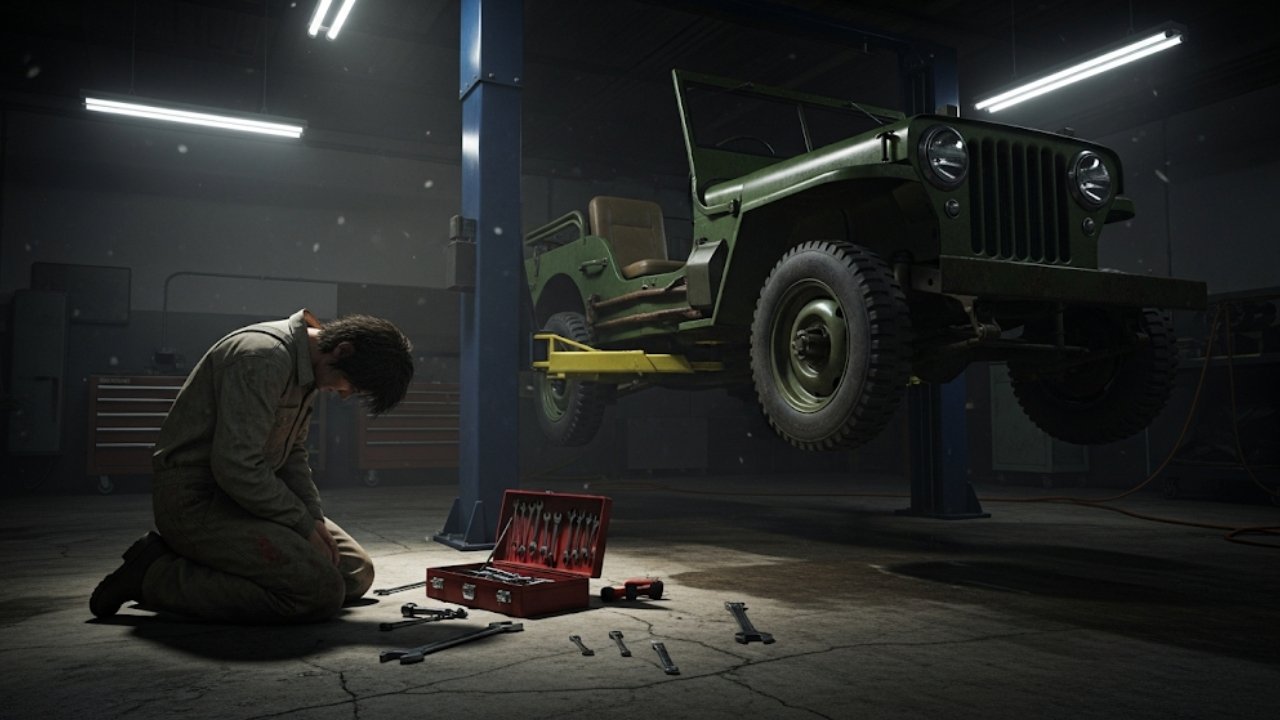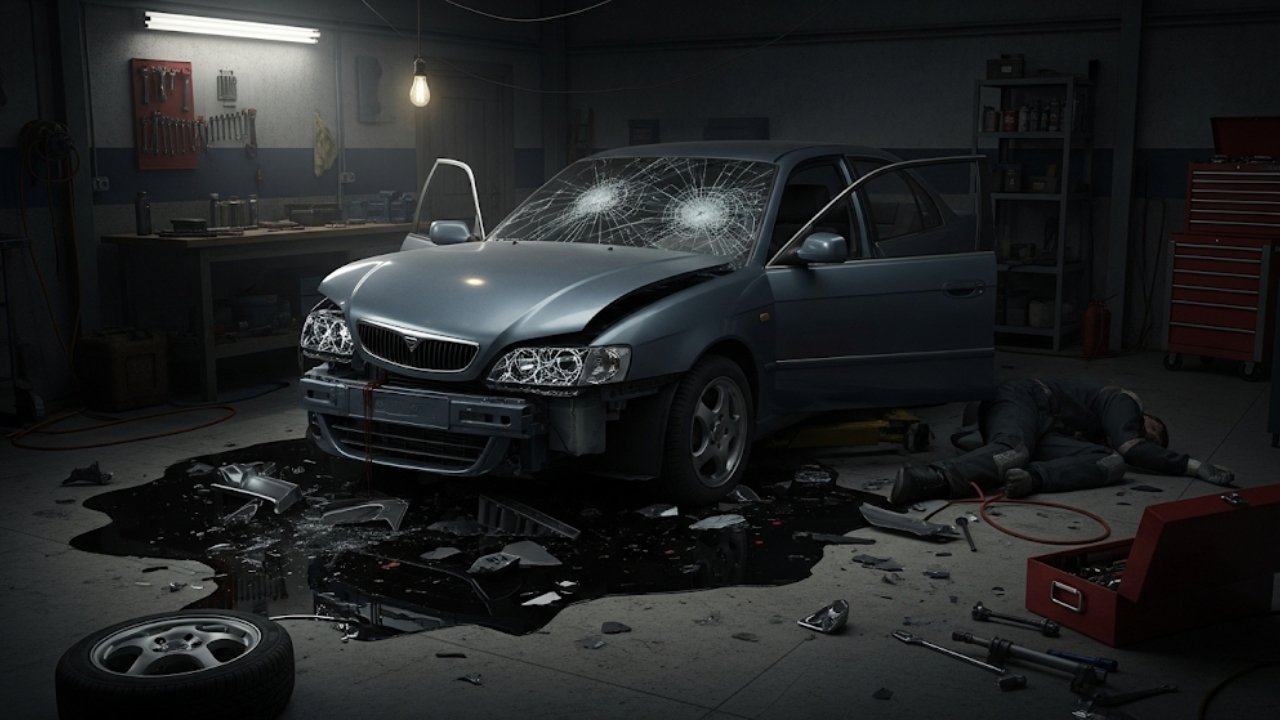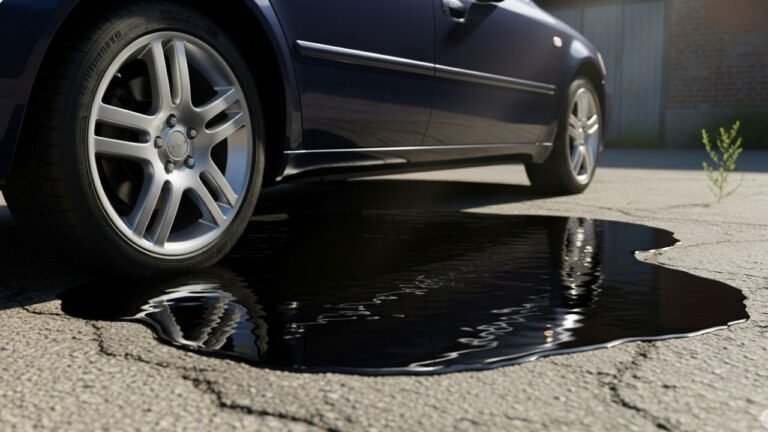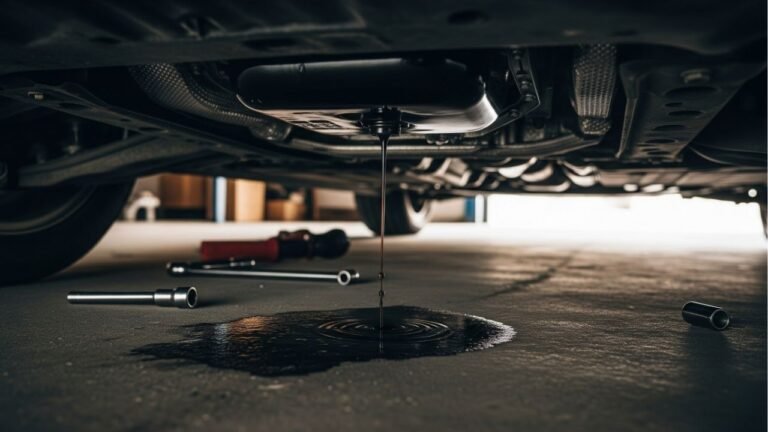Jeep Owner Sued After Employee Dies During Oil Change

Most of us think of an oil change as something routine. You drop your car off at a trusted shop or dealership, maybe grab a coffee while you wait, and get back on the road. But what if I told you that something as simple as that could lead to a lawsuit—and not just for the dealership, but you, the car owner?
It sounds like something out of a legal thriller, but it’s a very real case that has rattled drivers, mechanics, and legal experts across the country. A Jeep owner who left car at dealership gets sued after employee dies during oil change—a phrase that has stirred shock, confusion, and a deep fear of liability for car owners everywhere.
Let’s dive into what actually happened, why the car owner was sued, and what this means for every driver who leaves their keys at a service center.
In This Article
- 1 The Incident: A Deadly Mistake During a Routine Service
- 2 Why Was the Jeep Owner Sued?
- 3 What the Court Said—and What the Jury Decided
- 4 The Ripple Effect: What This Means for Every Car Owner
- 5 Key Takeaways from the Tragic Jeep Case
- 6 Real Talk: How This Would Feel If It Happened to You
- 7 Could This Be Prevented? Steps You Can Take
- 8 Bullet Points: Facts You Shouldn’t Forget
- 9 A Quick Table Recap
- 10 Legal Experts Weigh In: What This Case Means for Auto Liability
- 11 The Emotional Side: Two Families, One Tragedy
- 12 How Insurance Companies Handle These Situations
- 13 Protecting Yourself: Simple Steps to Avoid Legal Nightmares
- 14 Common Questions About the Jeep Oil Change Lawsuit
- 15 The Bigger Picture: When Law, Life, and Logic Collide
- 16 Final Thoughts: A Cautionary Tale for Every Driver
The Incident: A Deadly Mistake During a Routine Service

The Jeep was in for a standard service. The owner had done nothing unusual—just left the vehicle at the shop like millions of us do every year. But what followed was anything but normal.
The tragedy led to a lawsuit—but not against the dealership. Instead, the Jeep owner was sued for wrongful death.
That’s where things took a strange and alarming turn.
Why Was the Jeep Owner Sued?
Here’s the twist that shocked the nation: The dealership couldn’t be sued due to worker’s compensation laws.
In Michigan, if an employee dies on the job, their family can’t sue the employer. The family can only claim worker’s comp, which limits payouts. So, the deceased technician’s family lawyer decided to file suit against the Jeep owner, arguing that he allowed an unqualified person to operate the vehicle.
Sounds unfair? That’s exactly what most people thought too.
But here’s the legal logic behind it:
| Legal Reason | Explanation |
|---|---|
| Vehicle owner liability | In Michigan, the owner of a vehicle is legally responsible for injuries caused by someone driving their car with permission—even if the owner isn’t behind the wheel. |
| No lawsuit against employer | The dealership, as the employer, was protected under Michigan law. So the legal team had to find another liable party. |
| The owner had insurance | The Jeep owner’s insurance company ended up becoming the real target of the lawsuit—not necessarily the owner himself, but his policy coverage. |
So while it seems wild that the Jeep owner who left car at dealership gets sued after employee dies during oil change, it was a legal strategy meant to seek compensation through the insurance route.
What the Court Said—and What the Jury Decided
As the case unfolded, it became a media sensation. People couldn’t believe the logic: someone drops their car off for an oil change, walks away, and suddenly ends up in court.
During the trial, the key arguments were:
-
The Jeep owner handed over the keys to a professional dealership.
-
The employee who died wasn’t certified to operate the manual transmission.
-
The accident wouldn’t have happened if a qualified technician handled the car.
Despite the absurdity many felt, the jury ultimately awarded $15 million to the deceased technician’s family.
And yes, the Jeep owner’s insurance company was on the hook to pay.
It’s a cautionary tale that’s left many wondering: Could this happen to me?
The Ripple Effect: What This Means for Every Car Owner
This case cracked open a legal can of worms.
Here’s why it matters to you, me, and every other driver who takes their car in for service:
-
You could be sued if someone gets hurt while operating your car—even at a dealership.
-
It highlights the risks of broad insurance liability.
-
It raises the question of who is truly responsible once you hand over your keys.
Let’s break it down in real-world terms.
You go in for a routine oil change. Maybe it’s a quick stop during lunch. You trust the dealership. They’ve got trained staff, right?
Now imagine one of their employees isn’t properly trained, makes a mistake, and someone dies—or gets seriously injured. You never touched the car, you weren’t even there. But in the eyes of the law, you’re the registered owner. That fact alone puts a target on your back for a potential lawsuit.
Key Takeaways from the Tragic Jeep Case
To help you understand what this means for everyday drivers, here are the main takeaways in simple terms:
This isn’t just about Jeeps
It could be a Toyota, Ford, BMW, or Honda. If your name is on the title, you could be legally responsible.
Dealerships don’t always carry the legal burden
Thanks to worker’s compensation laws, employers are often protected from lawsuits. That leaves victims’ families searching for other options.
️ Insurance is your safety net—but not always
If you think your insurance will cover everything, think again. Most policies have limits, and not all situations are covered the same way.
⚠️ You could be dragged into court even if you’re blameless
This is the harshest truth of all. Even when you’ve done everything right, you might still need a lawyer.
Real Talk: How This Would Feel If It Happened to You
Imagine the phone rings. It’s your insurance company. They say you’re being sued. You’re stunned. You rack your brain—did you hit someone? Damage property? What happened?
Then they tell you.
A technician died during an oil change you scheduled weeks ago. You weren’t there. You did what every responsible car owner does—took your vehicle in for maintenance.
But because you’re the Jeep owner who left car at dealership, and the employee died during the oil change, you’re now at the center of a lawsuit. A legal storm you never saw coming.
It’s enough to make your heart drop.
Could This Be Prevented? Steps You Can Take
So what can you do as a car owner? You don’t want to live in fear every time you get your oil changed.
But this case makes it clear that taking some extra steps can help.
Here are some precautionary tips:
-
Ask who will service your car – Is the technician certified? Especially for manual transmissions.
-
Review your insurance policy – Make sure your liability coverage is adequate.
-
Document your drop-off – Keep records of communication when leaving your vehicle.
-
Avoid giving verbal permission for driving – Make sure you aren’t authorizing non-certified employees.
It might seem excessive, but after this case, these precautions don’t feel so paranoid anymore—they feel practical.
Bullet Points: Facts You Shouldn’t Forget
-
A Jeep owner was sued after a technician died during an oil change at a dealership.
-
The incident occurred because the technician wasn’t trained to drive a manual transmission.
-
The dealership couldn’t be sued due to worker’s compensation protection.
-
The victim’s family sued the car owner instead.
-
A $15 million judgment was awarded by the jury.
-
This sets a precedent that any vehicle owner could be held liable under similar conditions.
A Quick Table Recap
| Detail | Information |
|---|---|
| Vehicle | Jeep with manual transmission |
| Location | Michigan dealership |
| Incident | Employee killed during oil change |
| Key Cause | Unqualified technician released clutch accidentally |
| Legal twist | Owner sued instead of employer |
| Verdict | $15 million awarded to victim’s family |
| Lesson | Car owners can be legally responsible in rare cases |
Legal Experts Weigh In: What This Case Means for Auto Liability
This case has stirred up a storm among legal experts across the U.S. Many lawyers have called it a “wake-up call” for car owners. Not because they’ll suddenly be responsible for every move a dealership makes—but because the laws around car ownership and liability are more complex than we think.
Michigan’s law says the owner of a vehicle is responsible for damages caused by that vehicle, even if someone else is behind the wheel—with permission.
Now here’s the catch: dropping off your car at a dealership for a service might count as giving permission. Even if the dealership chooses which employee gets behind the wheel, courts may still say you’re responsible if something goes wrong.
It’s a blurry line. Most car owners assume handing the keys to a licensed shop means they’re safe. But this case proved that’s not always true.
Other states have similar laws. In California, New York, and Florida, vehicle owners can be held liable for damages, depending on the situation. So while the case happened in Michigan, the implications are national.
The Emotional Side: Two Families, One Tragedy
Sometimes, in legal battles, we forget the real people at the heart of the story.
Let’s take a pause and think about what both families went through.
The family of the 19-year-old technician was shattered. He was just starting his adult life. He had dreams, friends, a job he enjoyed—even if he wasn’t fully trained yet. His parents lost a son. His co-workers watched a tragic accident unfold before their eyes. And all of this happened in a place that should’ve felt safe—a workplace.
Now flip the coin.
The Jeep owner, a regular person who just wanted an oil change, was thrown into a nightmare. Imagine being told your insurance company must pay millions, and your name is on a wrongful death lawsuit. It would be gut-wrenching. The guilt, the confusion, the legal pressure—it’s a mental load no car owner expects.
Both sides faced pain, grief, and legal chaos. And that’s what makes this story so deeply human. It wasn’t just about oil or engines. It was about life, loss, and who should bear the burden when something terrible happens.
How Insurance Companies Handle These Situations
When you hear “the Jeep owner who left car at dealership gets sued after employee dies during oil change,” the first thing you might think is: Doesn’t insurance cover this?
Yes—and no.
Insurance companies are built to cover accidents. But they’re also businesses. When a claim hits $15 million, the fine print really matters.
Here’s how insurance companies generally handle such extreme claims:
-
They’ll provide legal defense, especially for liability cases.
-
They will often try to settle out of court to avoid large jury awards.
-
If coverage caps are exceeded, the car owner could be personally liable for any excess judgment.
In this case, the Jeep owner’s insurance likely paid the judgment. But if the owner had minimal coverage or specific policy exclusions, he might have faced out-of-pocket costs—or even bankruptcy.
It’s a chilling reminder to review your policy limits. Most of us carry the minimum required by law. But in rare cases like this, that might not be enough.
Protecting Yourself: Simple Steps to Avoid Legal Nightmares
No one can predict every accident. But there are steps you can take to reduce risk.
Here’s a checklist every car owner should consider before handing over their keys:
✅ Know Who’s Touching Your Car
Ask the dealership if certified staff will operate your car. Especially if it has a manual transmission or any special feature.
✅ Upgrade Your Liability Insurance
Many drivers carry just $100,000 or $300,000 in liability coverage. A wrongful death case could go into the millions. Talk to your agent.
✅ Get a Signed Service Agreement
When possible, get documentation that shows you’re not authorizing driving, only servicing.
✅ Ask for Transparency in Service Work
Politely request to know who is doing what to your vehicle. If something feels off, trust your gut.
✅ Use Dash Cams and Record Logs
It may feel extreme, but having a dash cam or record of who drove your car could protect you in court.
Common Questions About the Jeep Oil Change Lawsuit
Let’s answer some of the biggest questions drivers have about this bizarre and tragic case:
Q1: Why didn’t the dealership get sued directly?
A: Michigan law protects employers from civil lawsuits if an employee dies on the job. The family can only file a worker’s compensation claim. That’s why the lawsuit targeted the Jeep owner instead.
Q2: Could this happen in other states?
A: Yes. Many states have similar vehicle owner liability laws. If your car injures someone and you gave permission to the driver—even through a dealership—you could be held responsible.
Q3: Was the Jeep owner found guilty?
A: Not of a crime. But in civil court, the jury awarded $15 million to the technician’s family, which was paid by the Jeep owner’s insurance.
Q4: What can I do to protect myself legally?
A: Make sure your liability insurance limits are high, understand your coverage, and be cautious when handing over your keys. Ask questions, and don’t be afraid to request documentation.
Q5: What if I refuse to let anyone drive my car during service?
A: It may limit what the dealership can do. But in some cases, you can request that only certified techs move your vehicle—or request that the car not be driven at all.
The Bigger Picture: When Law, Life, and Logic Collide
The world isn’t always fair. The law doesn’t always feel just. This case proves that.
A man lost his life because a young employee wasn’t properly trained. A Jeep owner who left car at dealership for an oil change got sued for something he didn’t do. And a jury, in their effort to assign accountability, handed out a verdict that stunned the country.
We live in a time where even doing the right thing—like taking care of your car—can have unexpected consequences.
It’s a reminder to be thoughtful. To protect yourself. And to understand that when it comes to insurance, liability, and life, the lines aren’t always as clear as they should be.
Final Thoughts: A Cautionary Tale for Every Driver
We started this story with a simple act—a man taking his Jeep for an oil change. We ended with a death, a lawsuit, and a million-dollar judgment.
This wasn’t a freak accident in the wild. It happened in a controlled environment: a dealership. And yet, the consequences were anything but controlled.
So the next time you leave your keys at a shop, ask a few more questions. Review your coverage. And remember this story—not to scare you, but to prepare you.
Because sometimes, doing the most ordinary thing can lead to the most extraordinary consequences.






